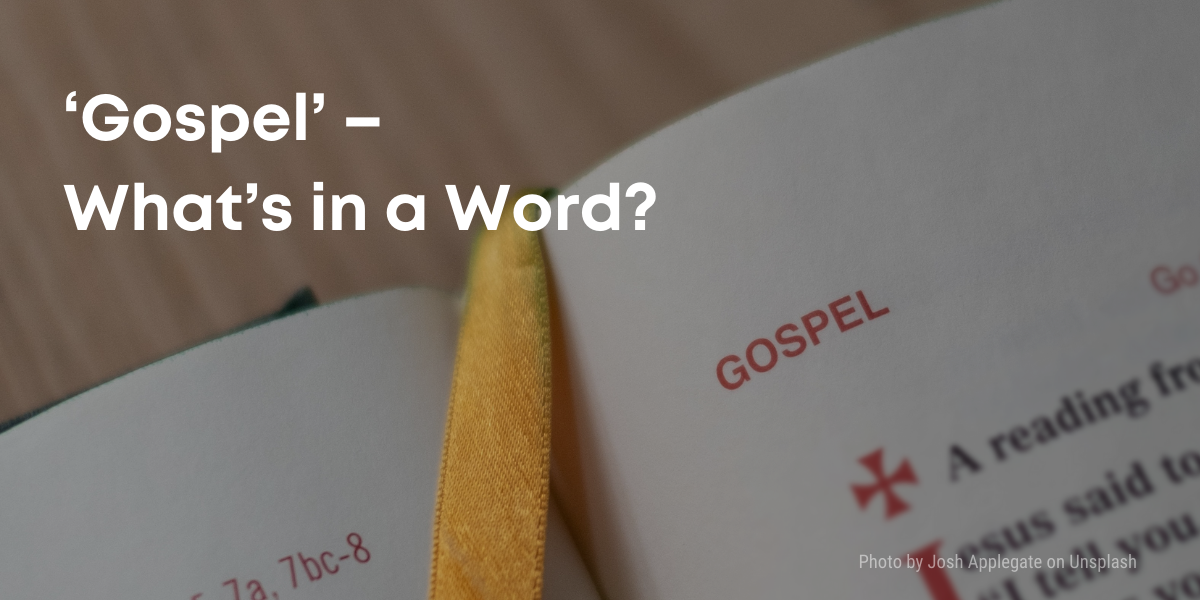‘Gospel’ – What’s in a Word?
An accurate understanding of the gospel story gives meaning to the lives we live here and now, the work we do, and the relationships we have with others.
If you would like to read a more in-depth discussion on the story of the Gospel presented in two, four, or five-chapters, here’s a link to download the whitepaper.
Sin and Grace
Growing up, I barely ever heard the word ‘Gospel’. When I did hear it, I thought the Gospel was just the story I needed to believe in in order to be saved and that I had to tell other people about it.
And of course, that’s right (in some ways)! First the awareness of sin, then the sweetness of grace; commonly understood as a ‘Two-Chapter’ Gospel where at first I was condemned to hell (Chapter 1), but now I’m saved in Christ (Chapter 2). Yet there remained a palpable disconnect between this understanding of the Gospel and its effect on my day-to-day life.
Why the disconnect?
Well, you might be familiar with one of Paul’s sayings – “For I decided to know nothing among you except Jesus Christ and Him crucified” (1 Cor 2:2). You might even say, “Of course! Here at church we preach the Gospel every single week and each day I do my devotions and remind myself of the Gospel.”
But how should the Gospel change how you respond to a difficult boss? What about a tricky marital conflict? What about depression? How about a church falling apart? Or what does the Gospel have to do with the spectacular joys in our lives – a promotion, a marriage, the very best-tasting food and drink?
In other words, the Gospel cannot be this arbitrary, Two-Chapter, ‘sin-and-grace’ story simply to be repeated like a mantra – it must be applied to our lives, or it won’t actually change us.
Living Out a Five-Chapter Gospel
GCN’s Incubator module on ‘Gospel Theology’ showed me a fully fleshed out Five-Chapter Gospel (Creation, Fall, Redemption, Renewal, Restoration). I saw how the Gospel doesn’t just have implications for what happened to my sin at the point of my justification, and neither is it simply the avenue of my “being saved” – but rather it’s also the power for the present, and assurance my future.
Creation tells me how things ought to be. The Fall explains how things went wrong. Atonement shows me how things have been made right in Christ. Restoration is a vision of how beautiful life will be in God’s new world. And Renewal tells me I’m on a trajectory to get there.
So God’s people live here and now in the Fourth Chapter – Renewal, between the Redemption of Christ, and His coming return.
And this Christian life of renewal is marked by three characteristics:
-
-
Living upside-down lives
-
Living inside-out lives
-
Living forward-back lives
-

